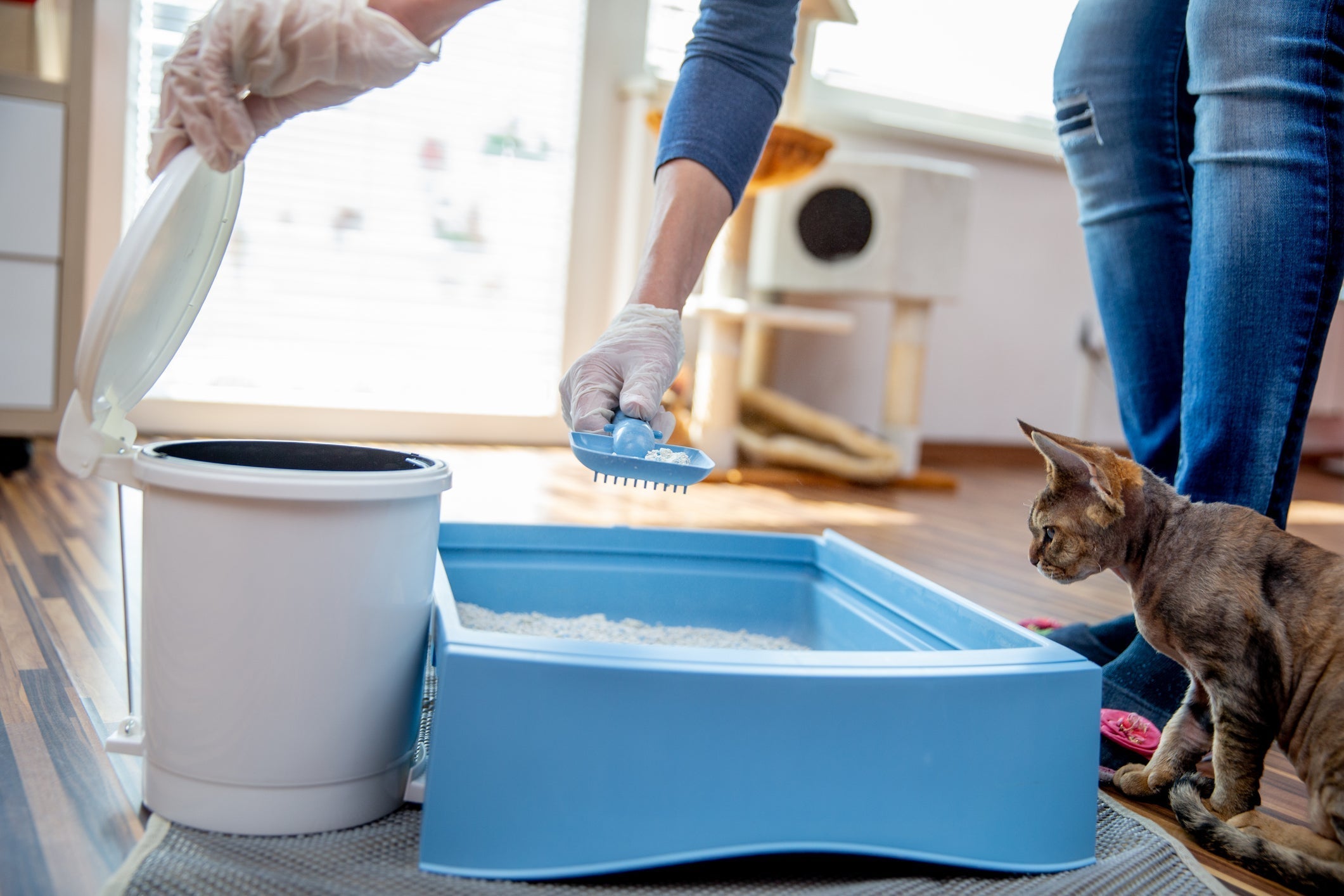Simple Cat Litter Habits That Keep Your Home Smelling Fresh

How to Build a Better Cat Litter Routine
A cleaner box. A happier cat. A fresher home.
Cats don’t ask for much, but they do expect a clean place to do their business. And when the litter box isn’t managed well, you’ll both feel it. Here’s a practical routine that works for one cat or five. No guesswork. Just habits that make life easier.
Scoop Daily (or More Often)
This is the one habit that changes everything
Scoop once a day. Twice if you’ve got multiple cats. Anything less and you’re inviting odor, bacteria, and behavioral problems. It’s not just about smell—cats will avoid a dirty box altogether.
Why it matters
-
Keeps odor under control before it becomes a problem
-
Cats are fastidious—they’ll stop using a dirty box
-
Reduces bacteria buildup and tracking around the house
Replace Litter Regularly
Fresh litter = better results
Even if you’re scooping daily, litter needs a reset. Every 2–4 weeks, dump everything and start fresh. Don’t just top it off.
Why it matters
-
Old litter stops absorbing effectively
-
Odors creep in over time, even if you’re scooping
-
Full replacement keeps bacteria in check
Clean the Litter Box Weekly
Yes, the box itself
Once a week, empty the box completely and give it a scrub. Use warm water and mild soap—nothing scented or harsh. Your cat’s nose is sensitive, and strong cleaners can drive them away.
Why it matters
-
Bacteria builds up in the corners and base
-
Even good litter can’t mask a dirty box
-
A clean box = fewer issues with infections or irritation
Choose the Right Litter
What works for you might not work for your cat
Some cats like clumping. Some prefer crystals. Others need a natural option. Try a few until you find the one that keeps both of you happy. Boxie makes all three.
Popular choices:
-
Clumping Clay Litter – Easy to scoop, great for odor control.
-
Crystal Litter (Silica) – Longer-lasting and excellent at absorbing moisture.
-
Eco Litter (Wheat & Rye) – Sustainable, low-dust, and long-lasting.
👉 Not sure which to pick? [Take the Boxie litter quiz.]
Consider a Litter Box Liner
Helpful for cleanup—if your cat allows it
Liners can save you time, but some cats don’t tolerate them. If your cat is fine with it, great. If they scratch or avoid the box, ditch it.
Why it matters
-
Makes dumping litter quicker and cleaner
-
Reduces sticky mess on the bottom of the box
-
But only use it if your cat’s comfortable
Use Multiple Litter Boxes
One cat? Two boxes.
The rule: one box per cat, plus one extra. Especially important in multi-cat homes where territory matters. It keeps things cleaner and your cats happier.
Why it matters
-
Avoids sharing-related stress
-
Helps prevent accidents around the house
-
Spreads out the mess, so no one box gets overwhelmed
Pick the Right Spot for the Box
Quiet, accessible, and away from food
Cats don’t want to go in high-traffic areas or near their food. Pick a low-stress, easy-to-access corner they can count on.
Why it matters
-
Reduces stress and territorial behavior
-
Makes them more likely to use the box consistently
-
Keeps litter out of food and water zones
Add Odor Control Products
Because even the best litter needs help sometimes
A sprinkle of baking soda or a cat-safe deodorizer can make a big difference, especially in smaller homes or apartments.
Why it matters
-
Keeps the space fresh between scoops
-
Encourages your cat to keep using the box
-
Makes litter box areas livable for humans, too
Watch for Changes in Behavior
Your cat’s bathroom habits can signal a problem
If they’re going less, going more, or avoiding the box entirely, pay attention. It could be litter-related or a medical issue.
Why it matters
-
Early signs of illness often show up in the litter box
-
Changes in behavior = time to reassess the setup
-
Could signal it’s time to clean more often or try a new litter
The Bottom Line
There’s no secret trick. Just a few solid habits. Scoop every day. Deep clean weekly. Use a litter that works. And always pay attention to your cat’s signals. You’ll have fewer messes, fewer smells—and a much more contented cat.

